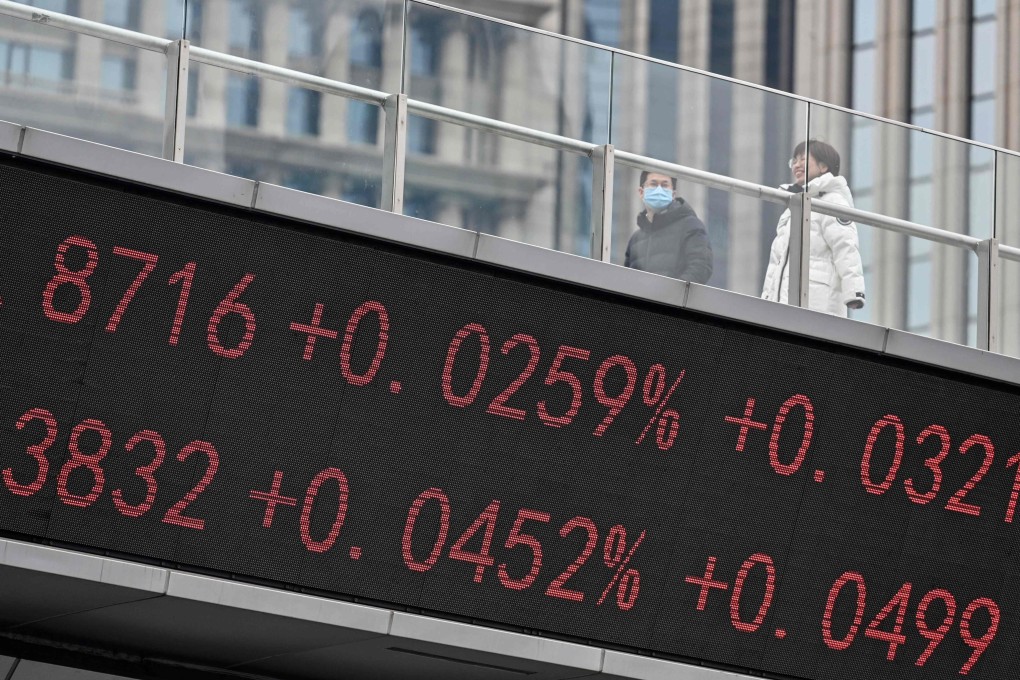UBS stays upbeat on stocks in China’s bear market as policy easing measures gain momentum
- The CSI 300 Index of biggest stocks in Shanghai and Shenzhen has lost more than 20 per cent from its February 2021 peak, a technical bear market
- UBS expects PBOC to lower the reserve-requirement ratio this year, among key calls on the policy front

A torrent of credit from local commercial banks, easier financing for home purchases and fee cuts for smaller businesses are among signals officials are treating China’s slowest growth since mid-2020 with urgency, according to Meng Lei, a Shanghai-based strategist at the Swiss investment bank.
“Most of the market risk factors have dissipated,” Meng said in a February 23 note to clients. “While it will take time for sentiment to recover, investors could become more positive” about the market outlook going forward, he added.
UBS expects China’s central bank to lower the reserve-requirement ratio this year, adding to two cuts in policy interest rates in December and January to slash funding costs for businesses. Banks wrote a record 3.98 trillion yuan (US$630 billion) of new loans last month, a sign China is reopening the lending tap.
